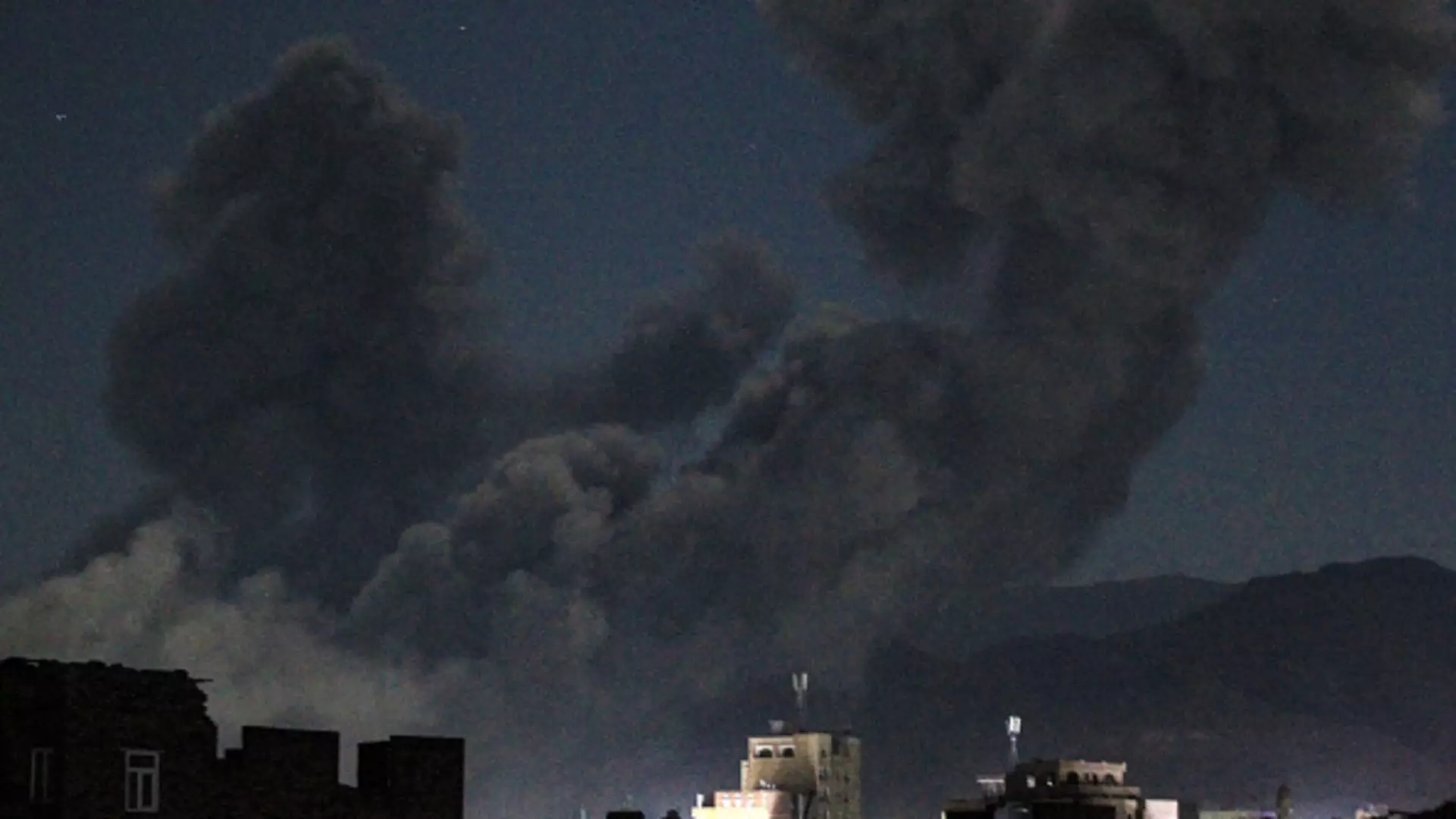In what can only be described as a reckless show of power, U.S. President Donald Trump precipitated a large-scale military offensive against Yemen’s Iran-aligned Houthis over the weekend. This strategic miscalculation leads to a staggering death toll—at least 31 lives claimed, predominantly among innocent women and children. Such aggressive military strikes are not only a troubling manifestation of the U.S. foreign policy approach under Trump’s administration but also highlight the dual tragedy of warfare: the loss of life and the intensification of conflict in the tumultuous Middle East.
As the conflict evolves, diplomatic negotiations fade further into the background. Trump’s warning to Iran—demanding immediate cessation of support for the Houthis—was not just a mere statement but a precursor to the heavy-handed military intervention he instigated. The President’s rhetoric, stating “America will hold you fully accountable and we won’t be nice about it!”, is not simply warmongering; it’s indicative of an administration increasingly inclined to pursue a militaristic agenda instead of thoughtful diplomacy. This glaring disregard for civilian populations in the pursuit of political objectives is profoundly unsettling.
The Human Cost of War: Lives Shattered in Yemen
The strikes targeting the Houthi stronghold resulted in immediate chaos and devastation, with Yemeni health officials reporting grim figures of casualties and injuries. Anees al-Asbahi, a spokesperson for the Houthi-run health ministry, conveyed the appalling toll, awakening the world to the reality of what such military campaigns truly inflict on society. It’s essential to underline the unassailable truth that wars are fought on the backs of vulnerable civilians, often bearing the brunt of excessive force. The claim that the Houthis are terrorists is an oversimplification, as it disregards the socio-political landscape of Yemen that has created breeding grounds for conflict.
Among the cries rising from the shattered neighborhoods of Sanaa, voices emerge lamenting the loss of everything from loved ones to security and basic dignity. The alarming conditions reported by residents, describing explosions akin to earthquakes, serve as a testament to the devastating consequences of such military engagements. The dilemma lies in the fact that U.S. actions are mistakenly seen as protective measures in an increasingly complex geopolitical scenario, masking the reality of humanitarian crises they contribute to.
The Price of Power: The U.S. and Global Perceptions
Tensions have flared internationally as the U.S. military strikes not only aim to neutralize a perceived threat but have also effectively entangled America deeper into Yemen’s already convoluted and suffering landscape. The National Security realm is reshaped with every missile launched, sparking fears of retribution and escalating retaliation from the Houthis and their allies. Iran’s Revolutionary Guards openly rebutted Trump’s threats by affirming the independence of the Houthis, insisting that their decisions are sovereign.
This response exemplifies the relentless cycle of aggression that seems to characterize U.S. foreign policy. It illustrates the fundamental question that looms large: can military intervention truly solve geopolitical issues, or does it merely serve to inflate the cycle of violence? Trump’s administration’s actions suggest a troubling trend; when faced with complexity, the tendency is to resort to displays of military might, which more often than not yield further instability.
The Nuclear Shadow: A Pivotal Moment in U.S.-Iran Relations
Compounding the existing tensions, recent U.S. strikes occurred simultaneously as diplomatic overtures regarding Iran’s nuclear program were being deployed. However, Trump’s aggressive posture may have undermined any potential for constructive dialogue. Iran’s foreign ministry described the military intervention as a “gross violation” of international laws, contending that the U.S. has no authority to dictate its foreign policy. Paradoxically, the U.S. claims to pursue peace while flexing its military muscle, inadvertently provoking further antagonism from Ahmadinejad to Khamenei.
As sanctions and military actions intensify, the possibility for diplomatic resolutions diminishes considerably. With both nations increasingly entrenched in their positions, the potential for conflict transcends the borders of Nation-States, posing threats to global stability. The rippling effects of Trump’s machinations reverberate far beyond the boundaries of Yemen, complicating relationships that could be pivotal in differing regional landscapes.
A Call to Responsibility: Rethinking Military Interventions
The recent U.S. strikes in Yemen raise profound ethical dilemmas about military interventions in global crises. While asserting national interests is a staple of state politics, carelessly disregarding the resulting humanitarian crises fosters a complicated legacy of suffering, mistrust, and escalation. The energy spent on military operations could be more pragmatically employed in fostering diplomatic relations, seeking compromise, and rebuilding rather than destructing.
As citizens of an interconnected world, it is crucial for us to scrutinize the actions of political leaders who possess the ultimate power to declare war. The lives irrevocably altered by the recent strikes call for moral clarity in the face of state-sponsored violence. Drawing on the lessons of history suggests it is imperative to seek dialogue, understanding, and cooperation to illuminate paths to peaceful resolutions rather than provoke further conflict.

